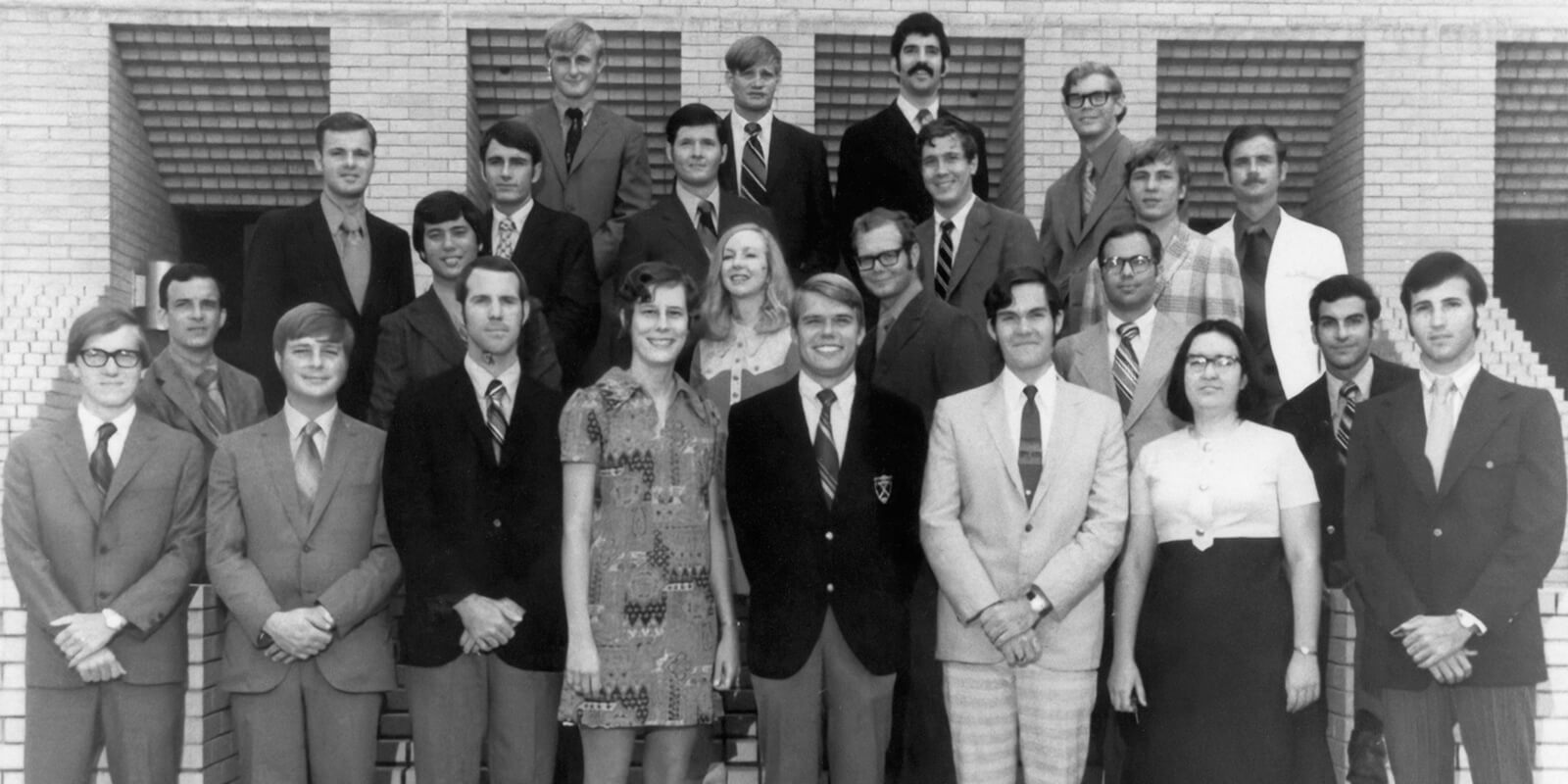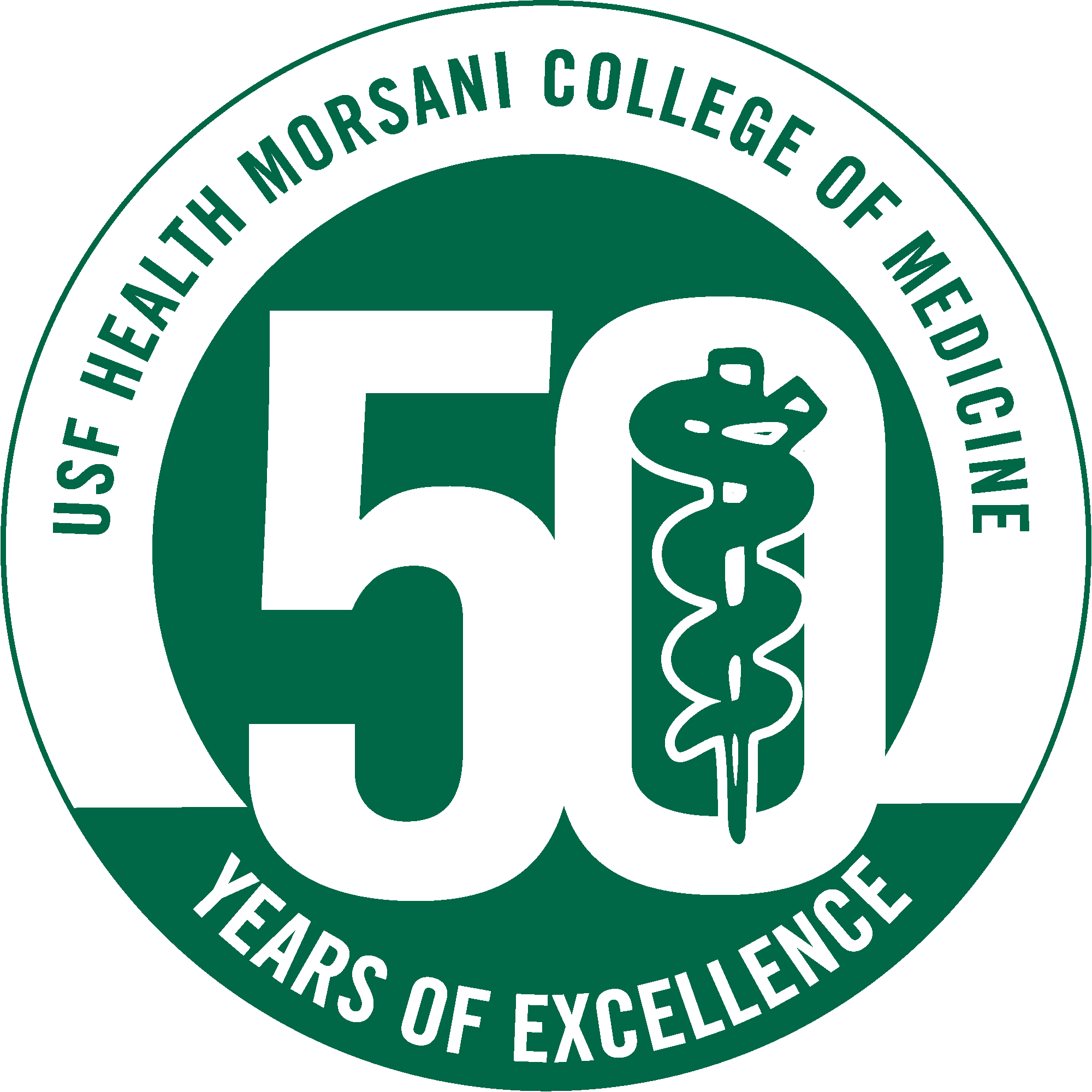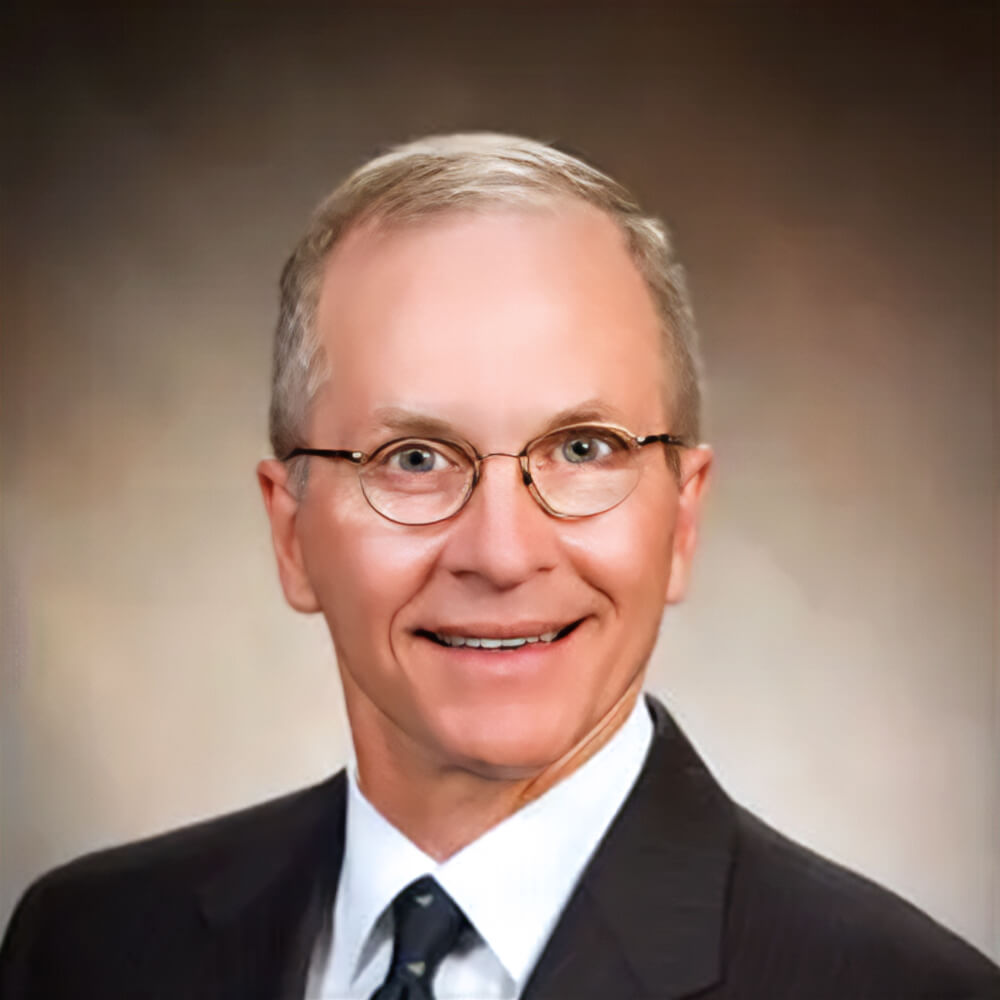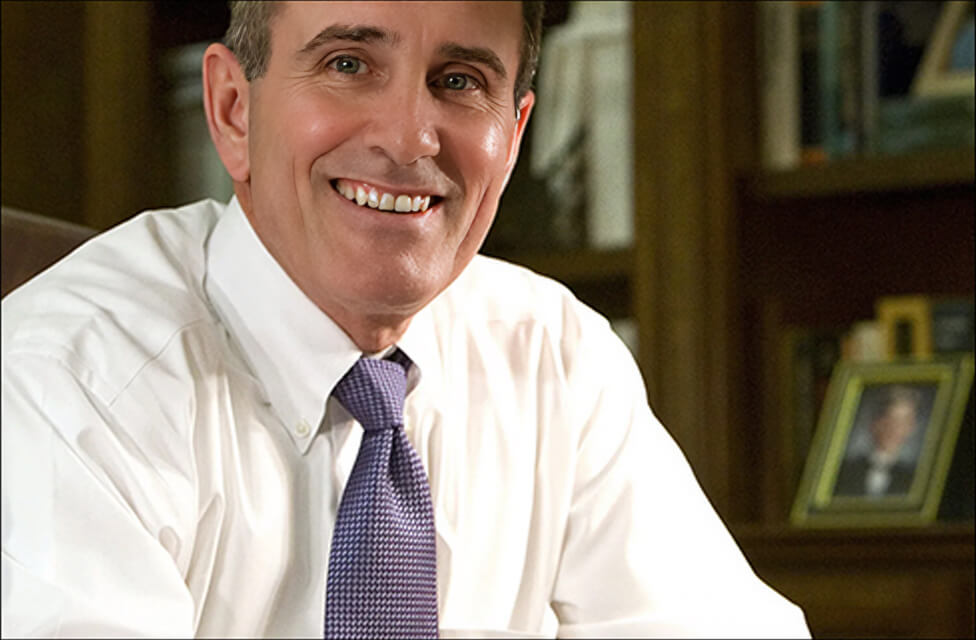
Morsani College of Medicine’s first graduates remember the early years
Jan. 10, 2024
by Allen Michael Amani
In 1971, 25 men and women made history as the first class of medical students at the University of South Florida. They were pioneers in a new era of medical education, research and health care in the Tampa Bay area and beyond.
 “The striking thing to me, as I look back now after so many years, is the uniqueness of being in the first class of students at a medical school,” said Douglas Barrett, MD '74. “They don't open new medical schools every week, so the opportunity was quite rare and unusual.”
“The striking thing to me, as I look back now after so many years, is the uniqueness of being in the first class of students at a medical school,” said Douglas Barrett, MD '74. “They don't open new medical schools every week, so the opportunity was quite rare and unusual.”
As the college celebrates its 50th anniversary in 2024, it also honors its charter class, who paved the way for its success and excellence. Those first students, who graduated in 1974, included 22 men and three women selected from more than 1,000 applicants.
John Hellrung, MD ’74, recounts being accepted into the inaugural class, and how a mistake almost squandered his opportunity.
“I was living in our fraternity house, and one of the pledges picked up the mail each day as one of his duties,” Hellrung explained. “He brought this mail over, and this acceptance letter slipped out and landed in the very busy street in front of our fraternity house. It was just lying there on the curb. I would have probably never known I was accepted because in the letter it said if you don't call us within one week, we'll assume you don't want to come. Luckily, one of my fraternity brothers saw my name on it and brought it in to me.”

The college recently moved to a state-of-the-art facility, which opened in January 2020 in downtown Tampa. The 13-story, 395,000-square-foot building features cutting-edge technology, simulation labs, research space and a collaborative learning environment. But when Barrett and Hellrung arrived, the school was just three rooms in the science building on USF’s Tampa campus.
“The classroom we had was smaller than the size of a regular classroom, and that was where we were pretty much all day,” said Hellrung. “Half of the classroom was a laboratory, and the other half was a lecture area. There was just enough room for 24 chairs to squeeze into this little lecture area with the blackboard, and all the people who taught us would come into there because we only had three rooms.”
The charter class faced other challenges, including adapting to a new and evolving curriculum and working with limited resources. But class members also remember overwhelming support from the faculty.
“It seemed to me that there were two or three times as many faculty as there were students in the first class. We had a lot of individual attention,” said Barrett. “We were also given a fair amount of freedom to explore things on our own. During our second or third year, we left the classrooms and went into the hospital for real on-the-job training.”
Being a part of a select group and sharing a unique experience led to strong bonds among the students.
“Between classes, we’d play hockey,” Hellrung recalled. “You know the little poles, the metal poles that they put on the desk for lab? We'd use those poles and tape some tongue blades to the bottom and use little Petri dishes for pucks. We gave each other nicknames like Francois and Ori and Jean Claude.”
Named the USF Health Morsani College of Medicine in 2011 in honor of philanthropists Frank and Carol Morsani, the school is now a nationally recognized academic medical center with more than 5,000 alumni, 1,200 faculty, and 900 students.
“We have pride in our accomplishments and being part of the new school, but I also think we had a certain level of humbleness or humility,” Barrett said. “We wanted to make the school proud and try to do the best that we possibly can.”

Hellrung, too, feels proud of his special place in the college’s history.
“We took a chance, and they took a chance on us,” he said. “The medical school doesn't get fully accredited until the first class graduates.”
To celebrate its 50th anniversary year, the Morsani College of Medicine has numerous events planned in 2024, including a January clay shoot, spring golf tournament, Alumni Weekend and a formal gala.
“I'm really hoping everyone makes the effort to get there so we can get together and go over old times,” Hellrung said. “We’ve had a very successful group. As they finished at USF, they all made names for themselves and have done some amazing work.”
Barrett went on to a long career in pediatrics. He served as chairman of the Department of Pediatrics at the University of Florida College of Medicine and as the university’s vice president for Health Affairs. He is grateful for his time at the Morsani College of Medicine and the faculty who helped him through his academic journey.
“I think it was pretty clear to us as new students that all of the faculty were taking a risk,” he said. “They all came from successful careers to join a brand-new medical school. I’m thankful for their commitment.”
Hellrung was commissioned as a physician in the U.S. Army and would later have his own pediatrics practice for 34 years. His time at USF taught him the importance of patient care and the benefits of hard work.
“There was a lot of work we did on just caring for patients and just trying to be as hard-working and diligent as possible,” Hellrung said. “We had a lot of people who mentored us and showed us how hard work pays off. We were working 100-hour weeks sometimes as interns and externs. It was very demanding, but the rewards were great.”

